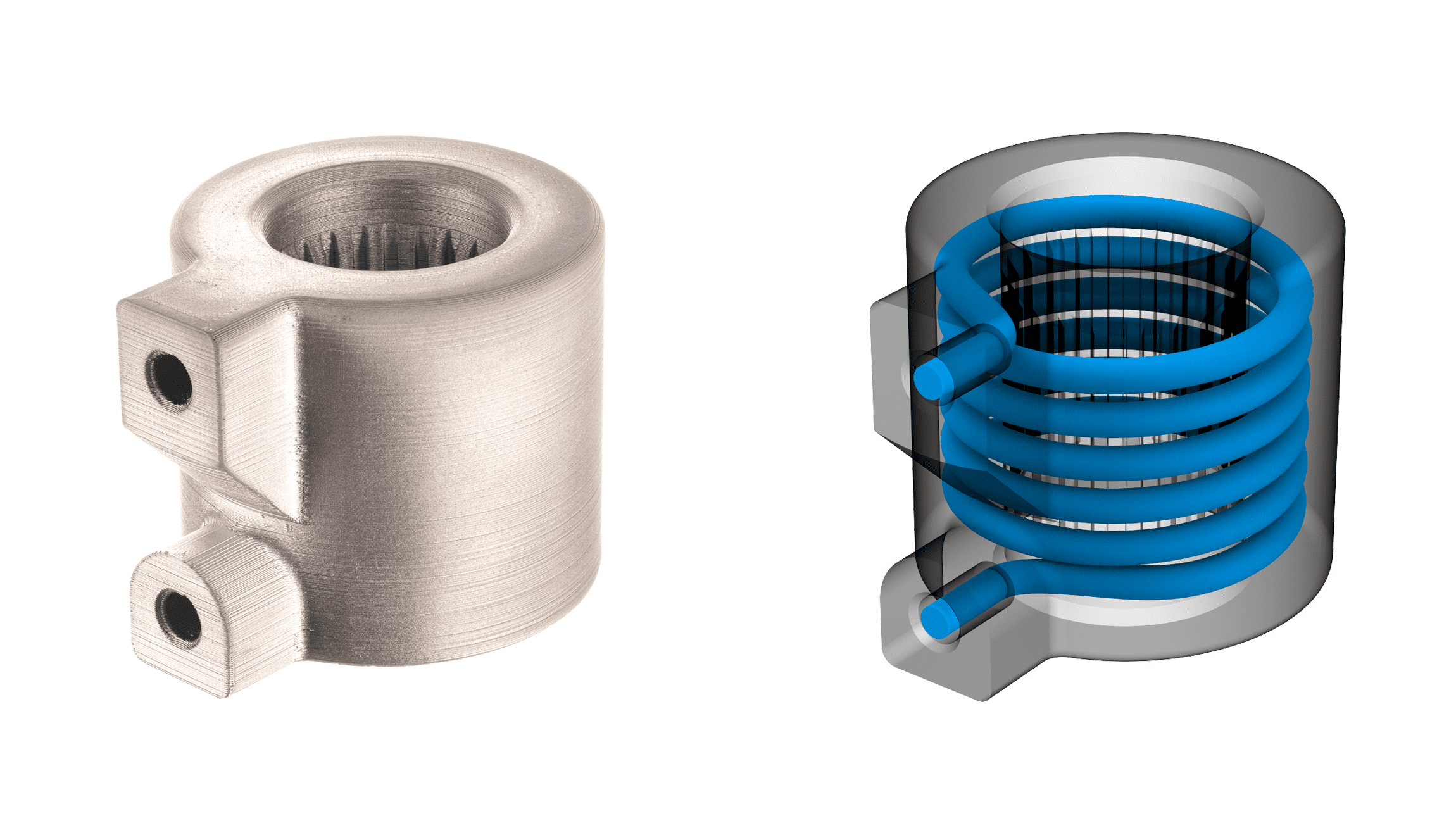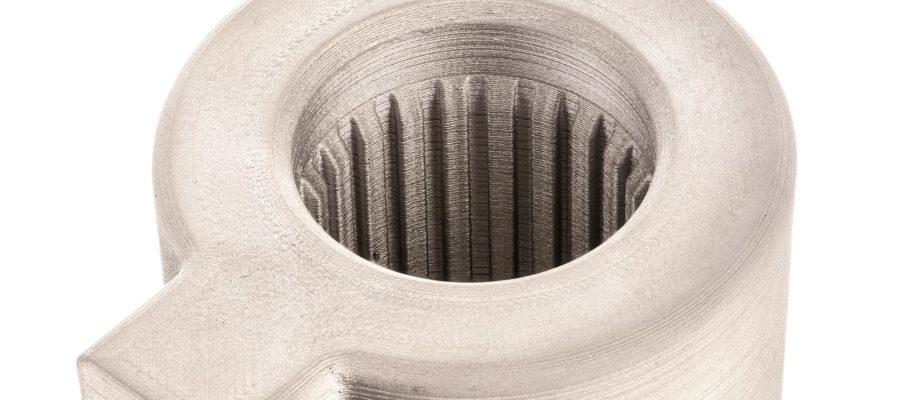What Are Internal Channels?

Internal channels are common parts found in a variety of applications, such as heat exchangers, manifolds and tooling parts. They are typically used to allow fluids to pass through the structure of the part and are essential to the productivity of a tool. However, internal channels are a feature that is very difficult to manufacture. With the use of traditional manufacturing methods, it is very hard to achieve variable geometries – traditional methods of manufacturing confine internal channels to mostly cylindrical and straight pathways with only a single plane. If the manufacturer is looking for a more complex design, it is nearly impossible to achieve and they must resort to costly and complex methods.
Internal channels are most commonly seen in tooling applications that require heat and cooling exchanges. For tooling applications that utilize heat exchangers, internal channels promote highly efficient designs with the increased surface area- this results in a much faster heat transfer rate. When it comes to cooling, internal channels allow for more effective performance such as shorter cycle times, faster cutting rates, and longer tool life.
The Problem
Internal channels are being built directly onto parts with the use of additive manufacturing. This process presents positive attributes such as greatly reducing manufacturing complexity and the introduction of alternatives like complex custom manifolds, and complex conformal cooling channels. However, DMLS, Direct Metal Laser Sintering, is currently the most common way this is achieved. This method is proven problematic as it is costly, slow, and dangerous, thereby making this manufacturing method impractical for the majority of operations.

BMD=The Solution
Thanks to Desktop Metal, Bound Metal Deposition (BMD) is changing the way that internal channels are being made. BMD manufactures internal channels simply, cost-effectively and in a matter of days. BMD works by building parts layer by later, and this allows for the ability to create affordable tooling components (like molds, cutting tools, and dies) like heat exchangers with better heat transfer rates, tools with conformal cooling channels and a variety of other parts with complicated internal channels.
Click below to learn more about the finishing options of Additive Manufacturing with Desktop Metal
